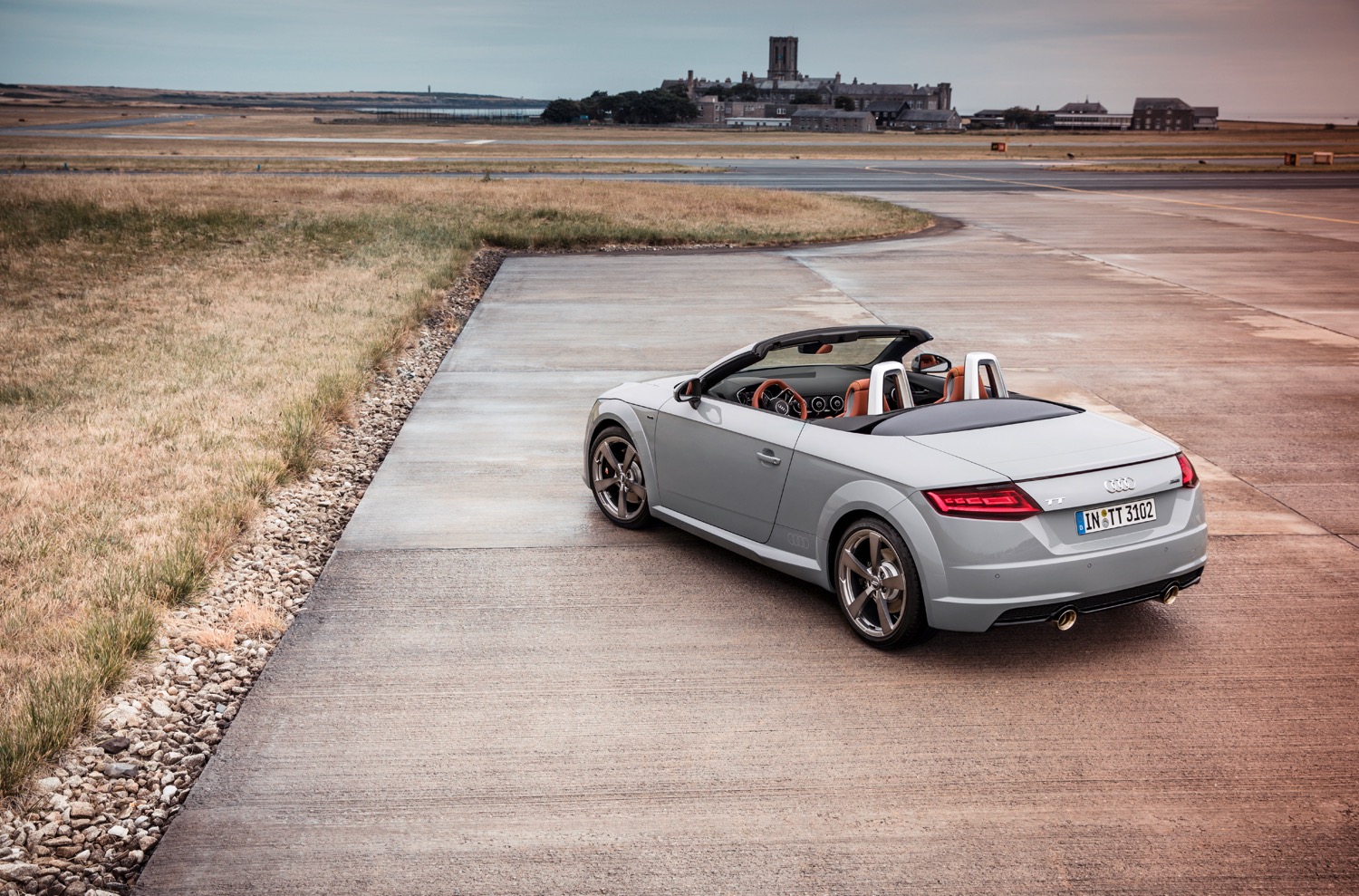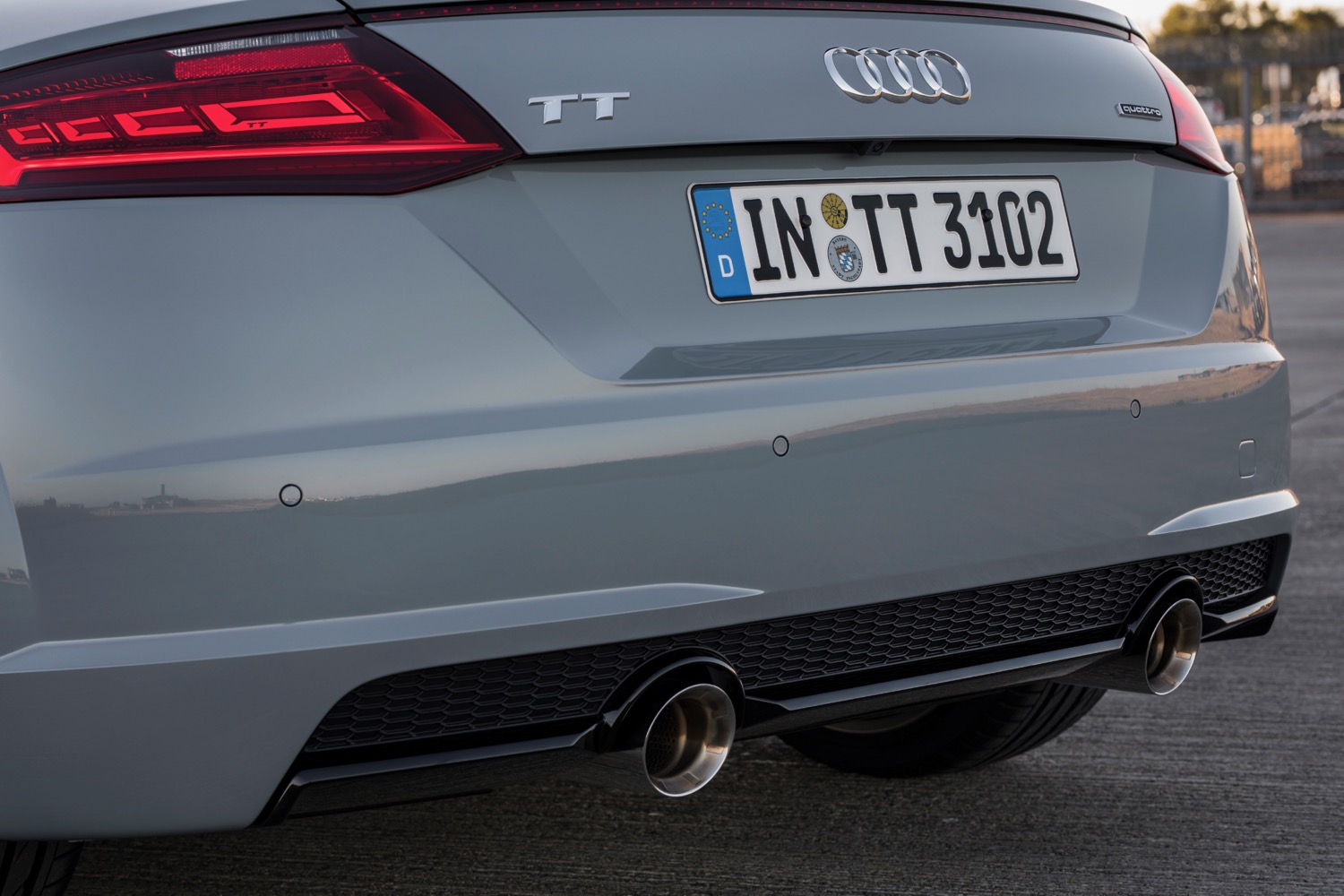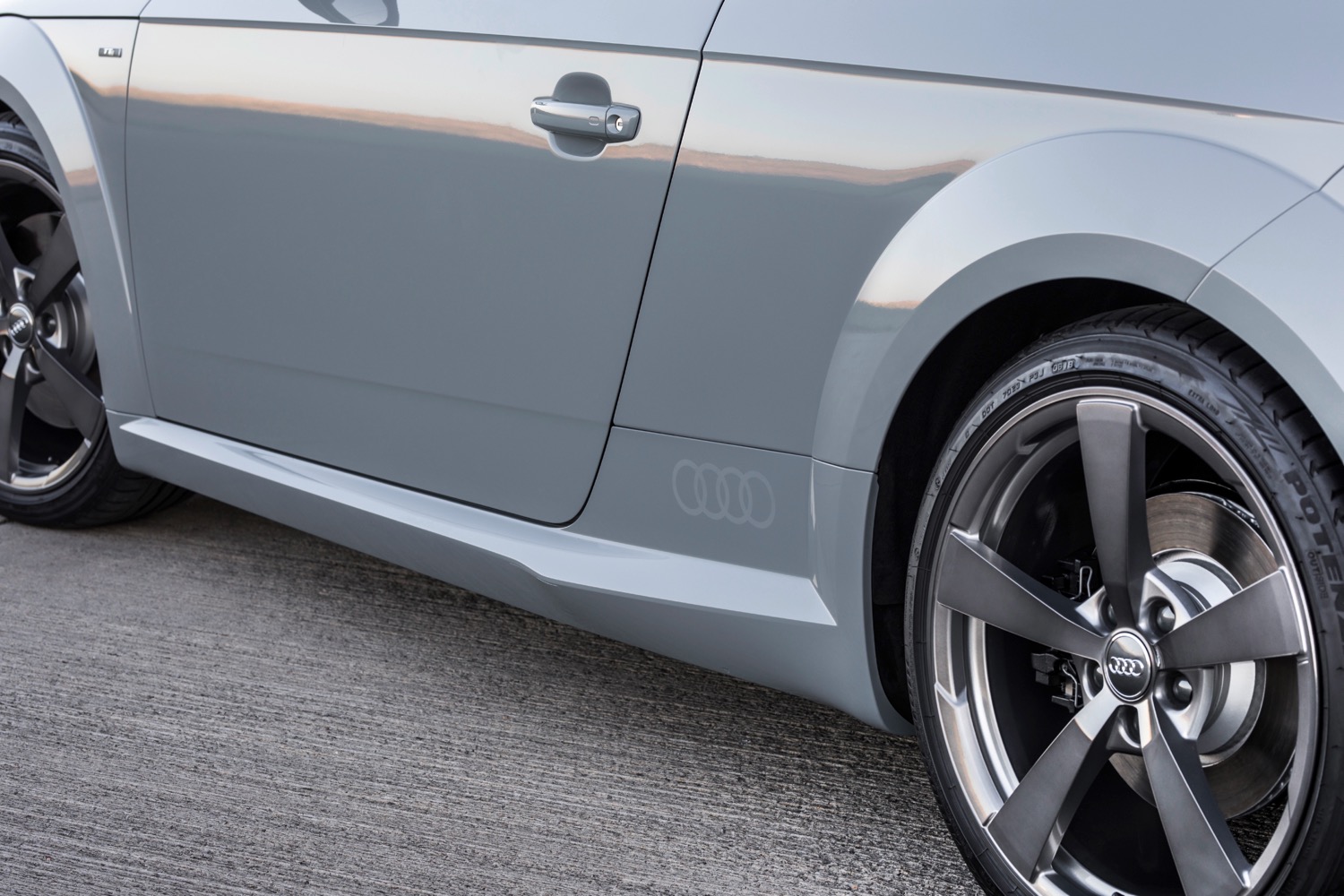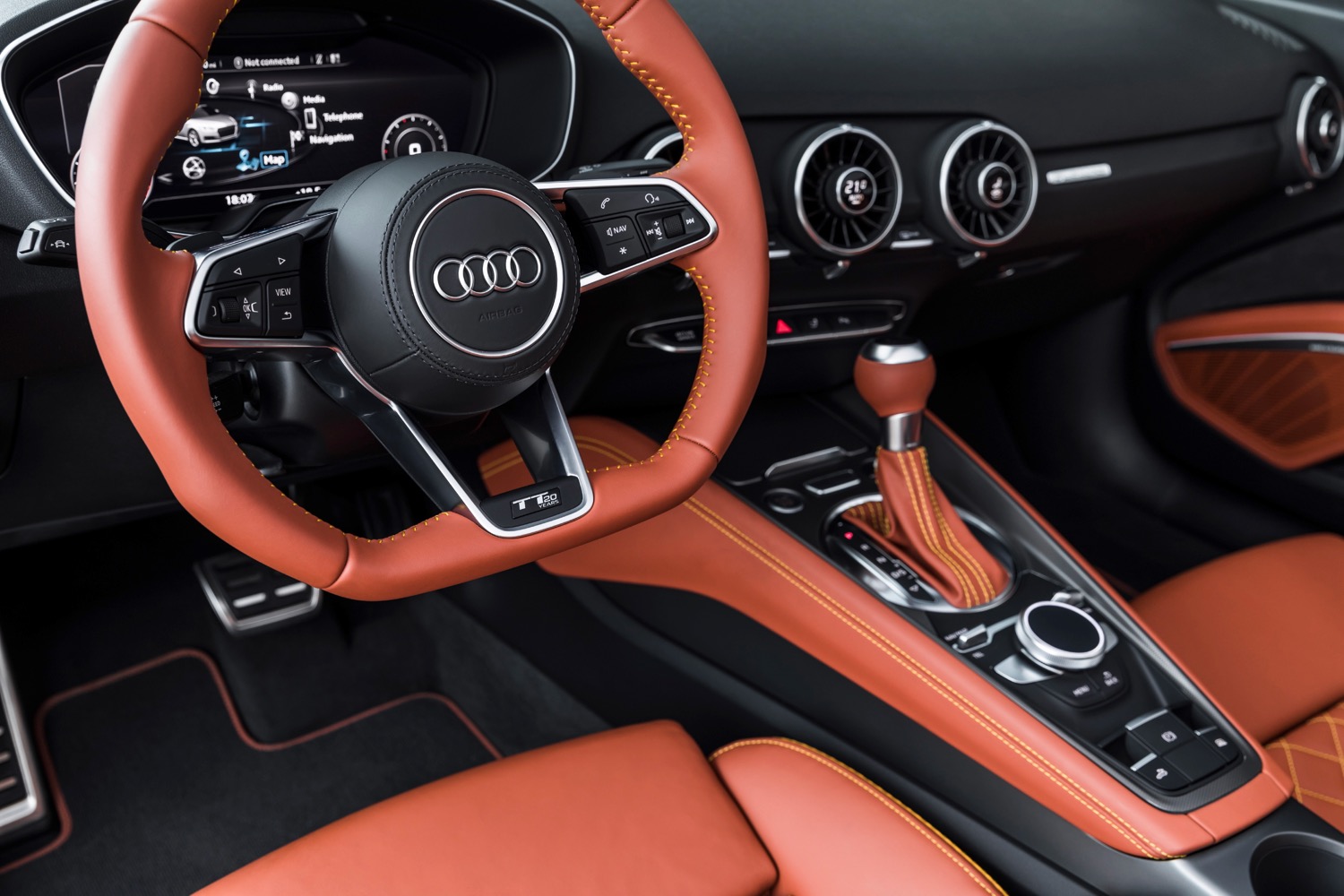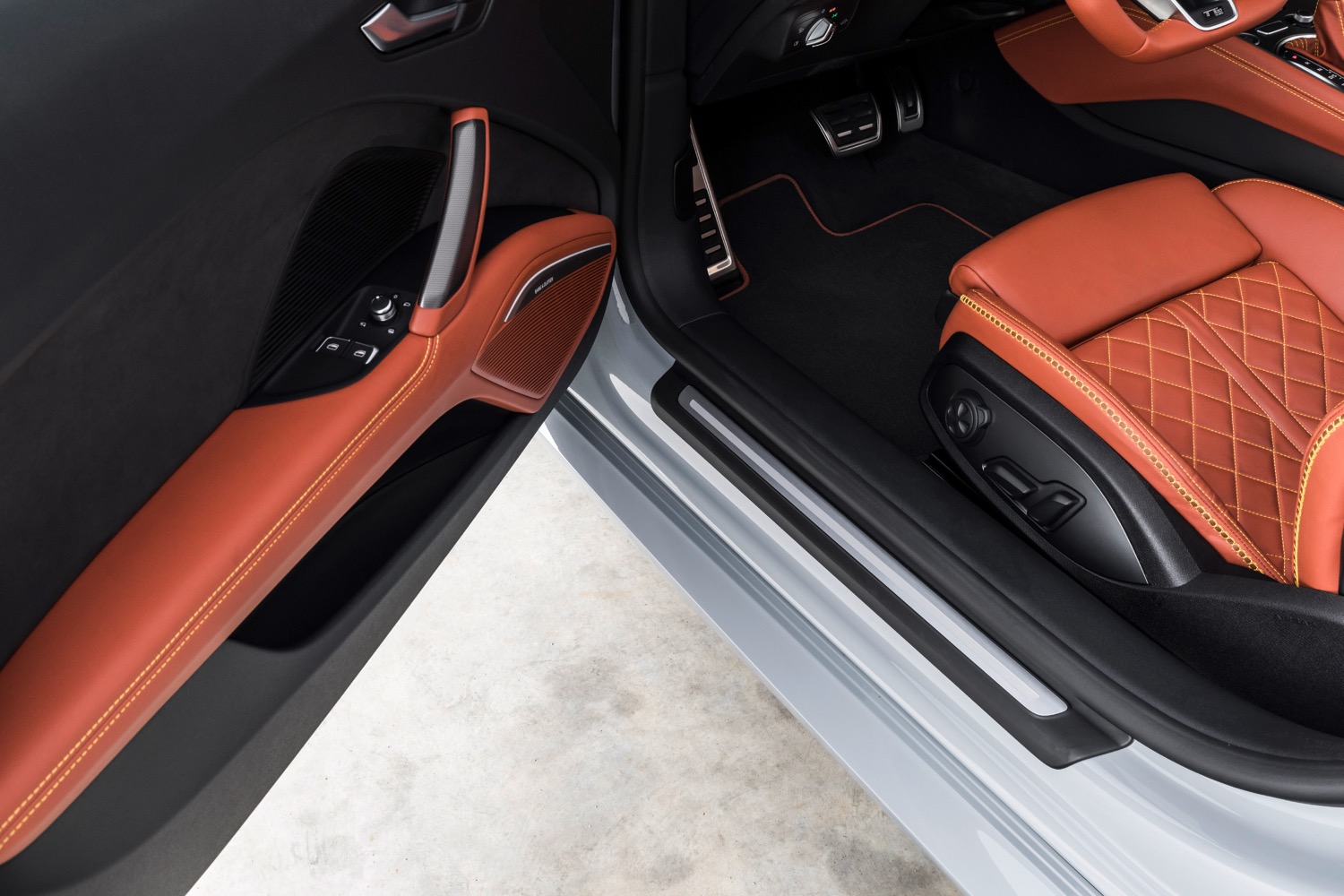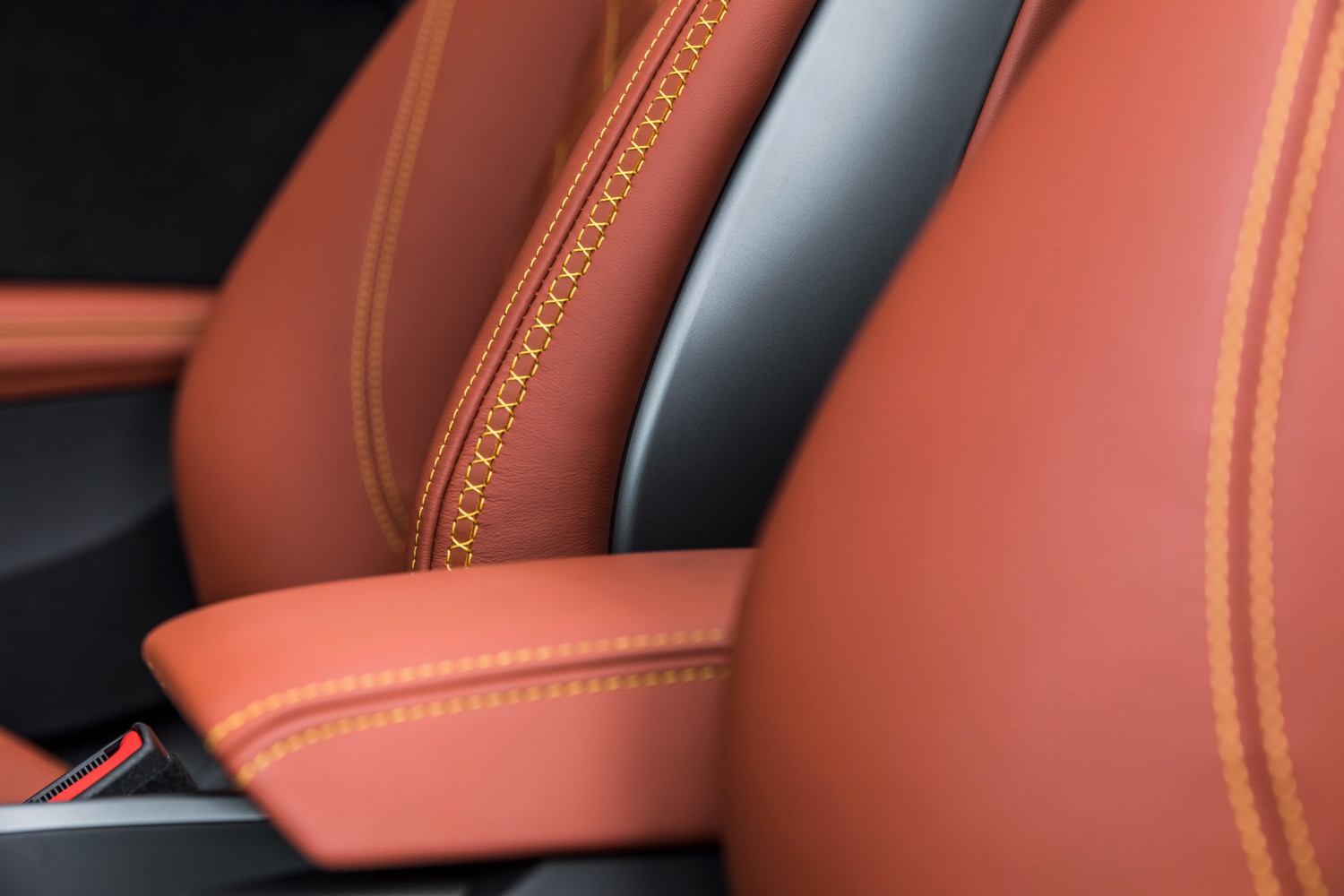The Audi TT launched 20 years ago, becoming an instant design classic thanks to the first-generation model’s distinctive Bauhaus look. To celebrate, Audi is diving deep into 1990s nostalgia with a special-edition model. The Audi TT 20th Anniversary Edition will be available as a coupe or convertible, with a limited production run to keep things exclusive. The special edition brings back one of the original TT’s most distinctive design features.
The first-generation Audi TT was available with a “baseball glove” leather interior, which featured brown leather and contrast stitching meant to look like the stitches that hold a mitt together. The 20th Anniversary Edition gets Moccasin Brown Nappa leather and yellow contrast stitching to try to replicate that look, although it’s not quite the same. Interior badging with each car’s production number and a “TT 20 Years” plaque attest to the model’s specialness.
The 20th Anniversary Edition is available in two colors: Aviator Gray pearl metallic or U.S.-exclusive Nimbus Gray metallic. The special edition also gets model-specific 19-inch wheels, trumpet-style exhaust tips, and OLED taillights from the TT RS performance model. Audi said the styling references the TTS Roadster concept that debuted at the 1995 Tokyo Motor Show, although the TT didn’t launch as a production model until 1998, as a 1999 model in Europe.
Audi will only offer one powertrain option in the U.S. A 2.0-liter turbocharged four-cylinder engine — producing 228 horsepower — is coupled to a seven-speed dual-clutch automatic transmission. That combination will get the coupe from zero to 60 mph in 5.2 seconds, while the convertible does the same in 5.5 seconds, according to Audi.
The 20th Anniversary Edition gets the Technology package that is optional on the base TT. The package includes Audi’s MMI infotainment system with navigation, Virtual Cockpit (replaces analog gauges with a reconfigurable digital display), Bang & Olufsen audio system, Apple CarPlay/Android Auto compatibility, and Audi Side Assist (blind spot monitoring). The Audi Phone Box, which combines wireless charging and a signal booster, is also included.
The Audi TT 20th Anniversary Edition is on sale now, with prices starting at $53,895 for the coupe, and $57,795 for the convertible. Both prices include a mandatory $995 destination charge. Audi previously told Digital Trends that it will make 999 cars, with about 80 slated to be imported to the U.S.
Editors' Recommendations
- Audi’s SkySphere electric roadster has shape-shifting superpowers
- Madden 21 brings back Colin Kaepernick after four-year absence
- Audi’s rugged A6 Allroad wagon is finally coming back to the U.S.
- Microeconomics and a little magic help bring the 2020 Audi RS 6 Avant to U.S.
- Audi TT will get the ax to make way for electric cars — and the R8 may be next




